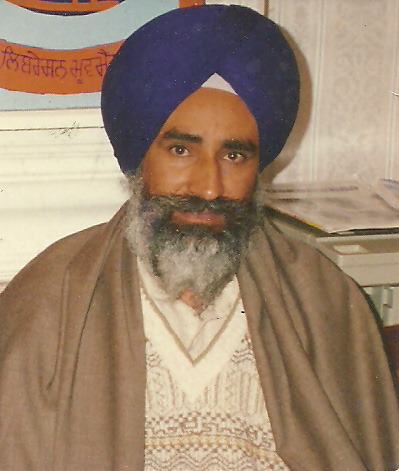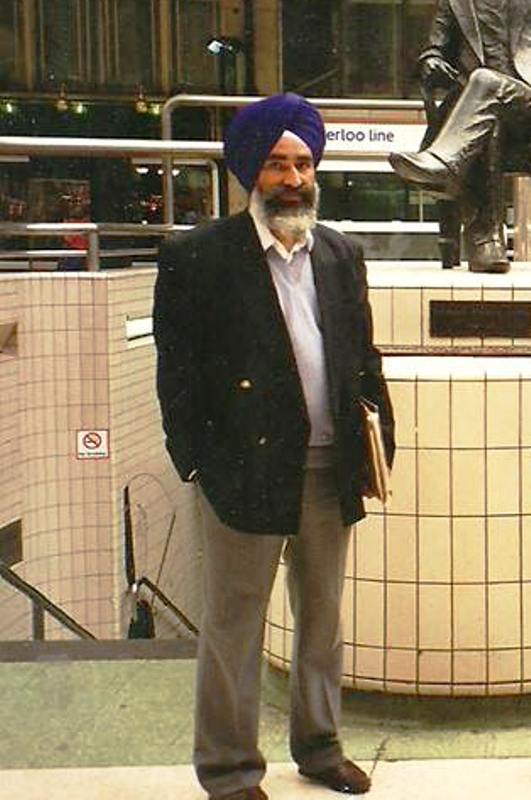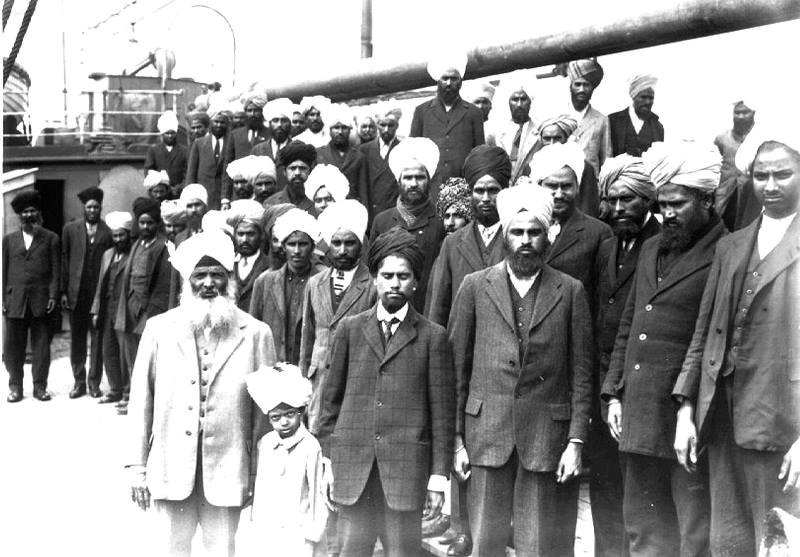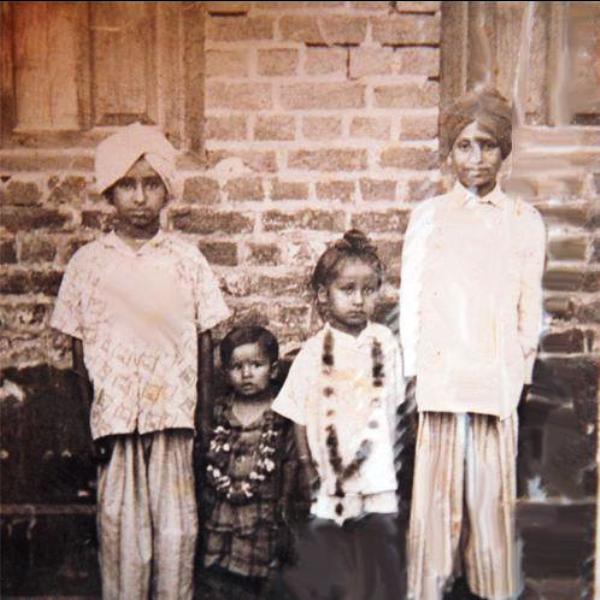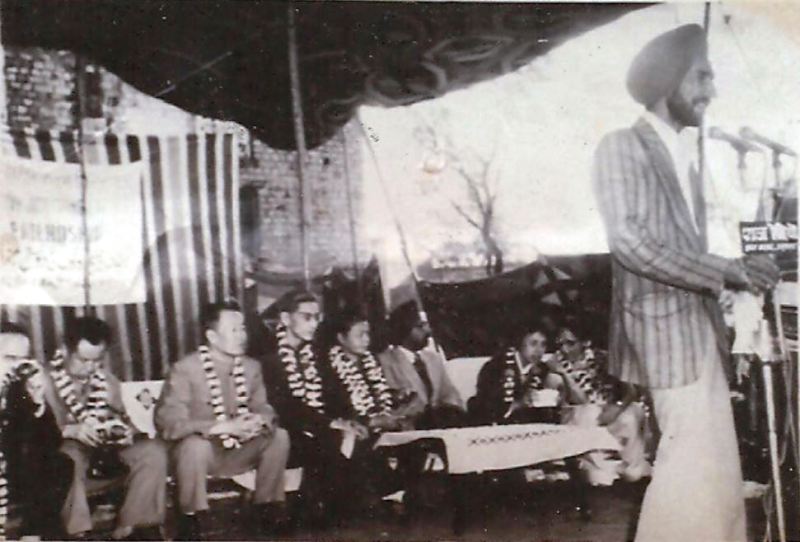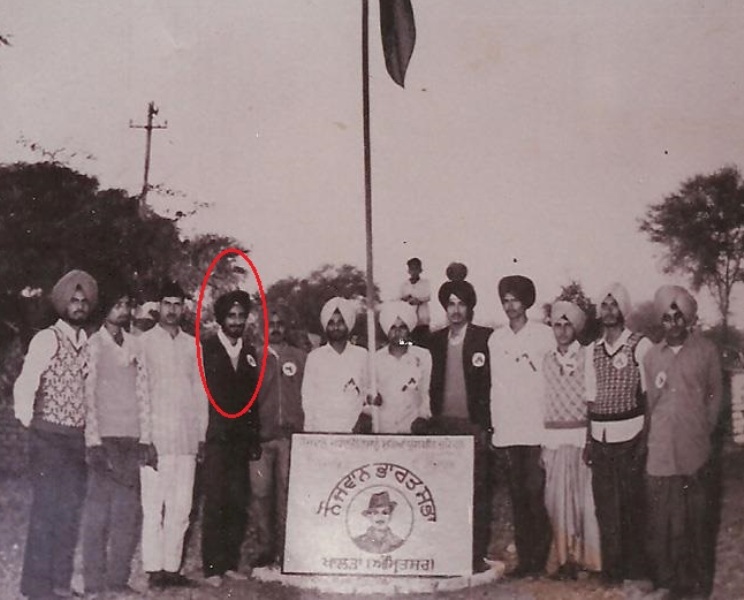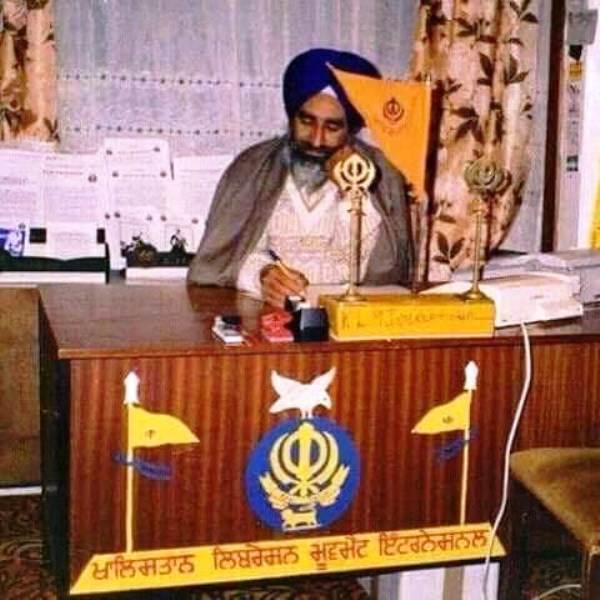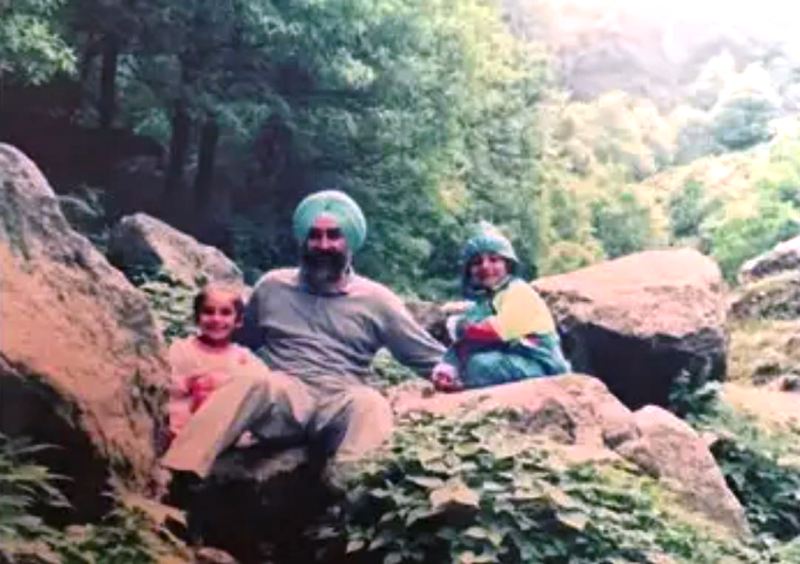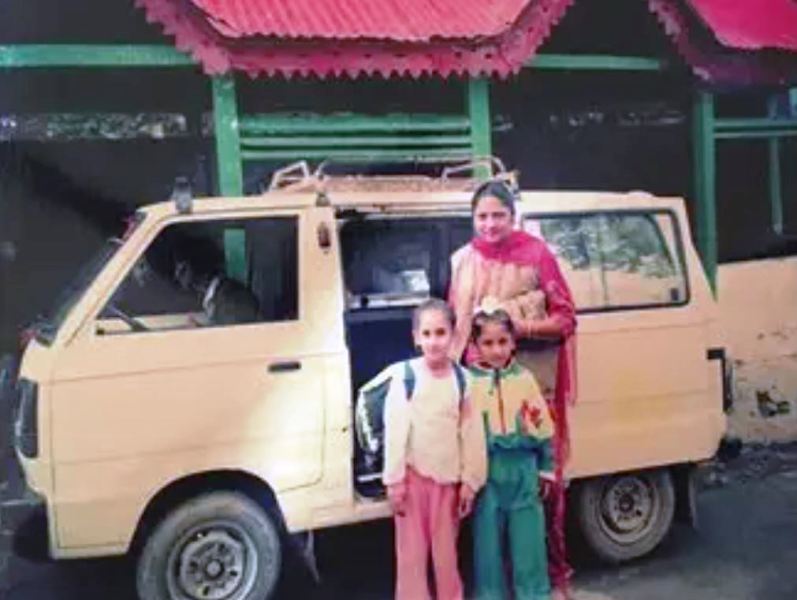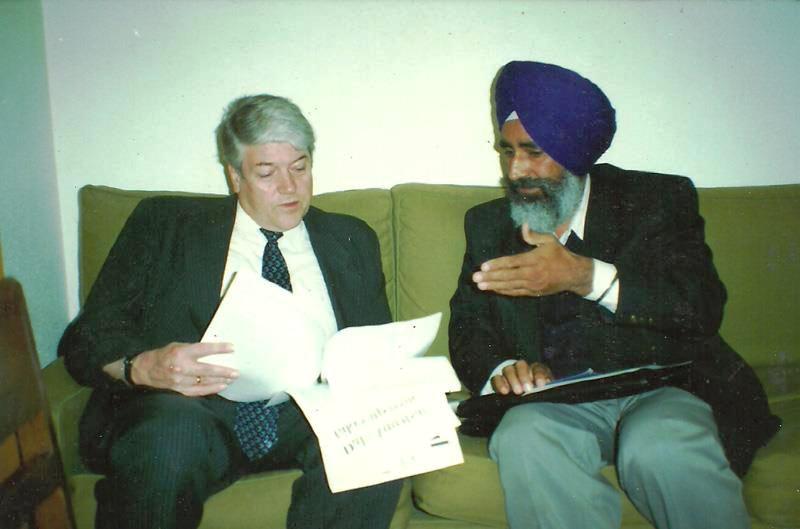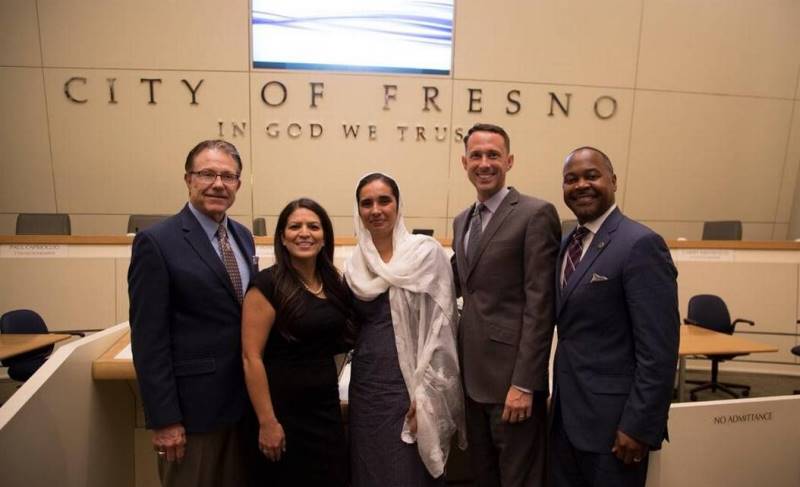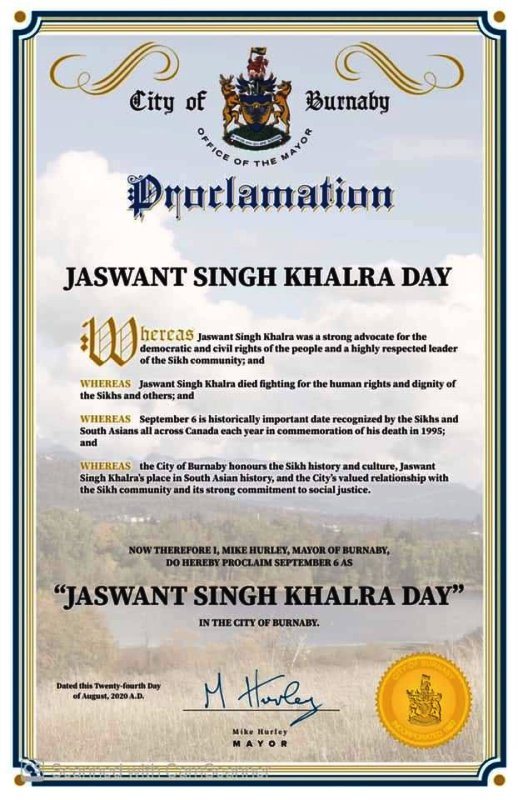Jaswant Singh Khalra Age, Death, Wife, Children, Family, Biography & More
| Bio/Wiki | |
|---|---|
| Profession | Human Rights Activist |
| Physical Stats & More | |
| Eye Colour | Black |
| Hair Colour | Salt & Pepper |
| Personal Life | |
| Date of Birth | Year, 1952 |
| Birthplace | He was born in a remote area of Punjab near the India-Pakistan border in Amritsar. |
| Date of Death | 28 October 1985 |
| Place of Death | Chabal police station of Amritsar district |
| Age (at the time of death) | 43 Years |
| Death Cause | After his abduction on 6 September 1995, the Punjab Police kept him in illegal detention at Chabhal Police Station, Tarn Taran. After torturous interrogations, he was shot dead on 28 October 1985. [1]Panthic |
| Nationality | Indian |
| Hometown | Khalra, Tarn Taran district, Punjab, India |
| College/University | Baba Budha College,Bir Sahib |
| Educational Qualification | A degree in Law. [2]B-Coalition |
| Religion/Religious Views | Sikhism [3]SikhSiyasat |
| Address | House No. 8, Kabir Park, Opposite Guru Nanak Dev University, Amritsar, Punjab, India |
| Relationships & More | |
| Marital Status (at the time of death) | Married |
| Marriage Date | Year, 1981 |
| Family | |
| Wife/Spouse | Paramjit Kaur (human rights activist, politician)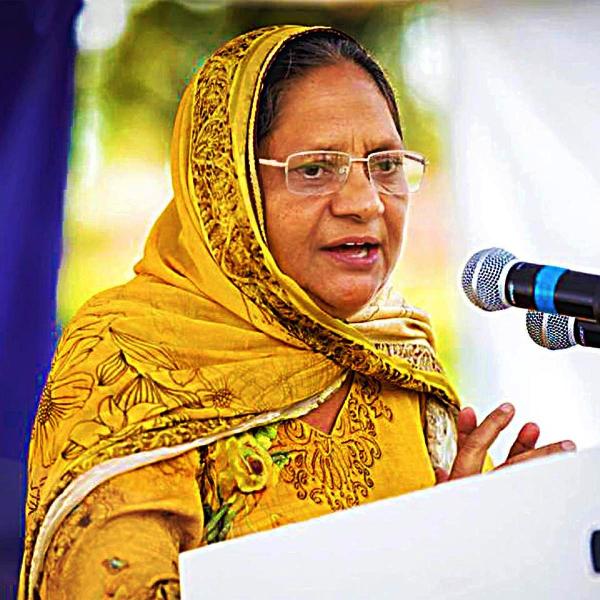 |
| Children | Son- Janmeet Singh (human rights activist)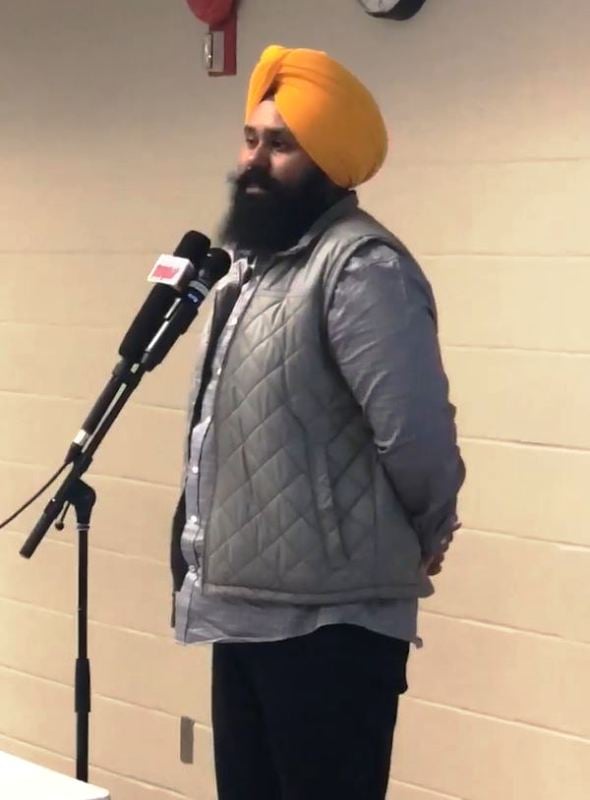 Daughter- Navkiran Kaur (human rights activist, Senior Manager at Western Digital in Milpitas, California) 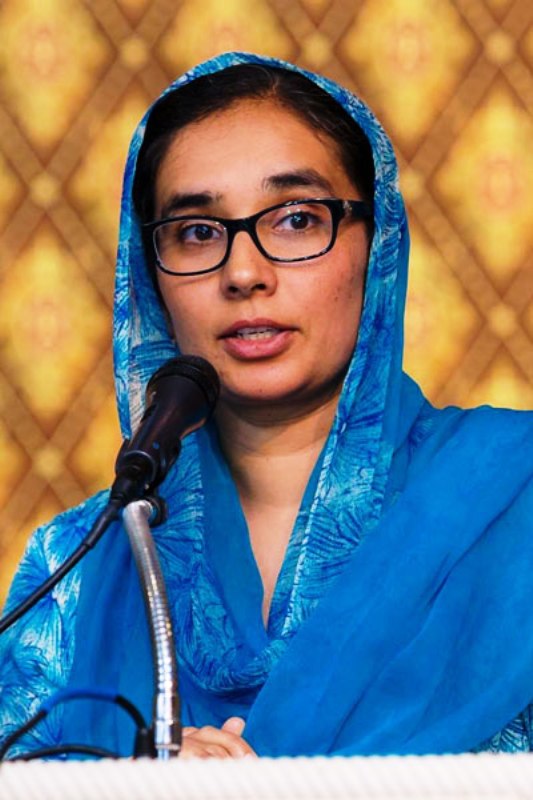 |
| Parents | Father- Kartar Singh Mother- Mukhtar Kaur |
| Siblings | Brother(s)- Rajinder Singh Sandhu, Amarjeet Singh Sandhu(both lives in UK) and Gurdev Singh Sandhu (lives in Austria) Sisters(s)- Pritam Kaur, Mahinder Kaur, Harjinder Kaur (retired BEO), Baljit Kaur (retired Headteacher), Beant Kaur 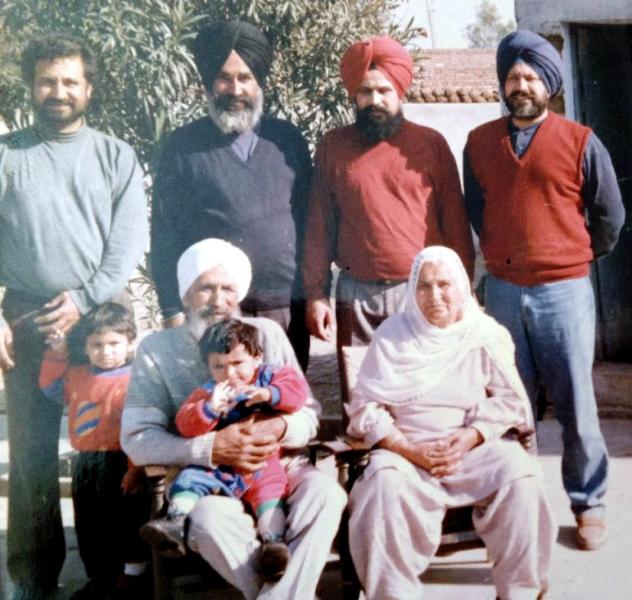 |
| Money Factor | |
| Assets/Properties | Paramjit Kaur's affidavit for the 2019 Lok Sabha elections mentioned immovable assets of worth Rs 1,10,00,000 belonging to Jaswant Singh Khalra. It included 3 acres of agricultural land in Khalra valued at Rs 45,00,000, 1/2 share of 2700 square feet of non-agricultural land in Chheharta valued at Rs 15,00,000, and 1/2 share of 2500 square feet of residential building in Amritsar valued at Rs 50,00,000. [4]MyNeta |
Some Lesser Known Facts About Jaswant Singh Khalra
- Jaswant Singh Khalra (1952-1995) was a prominent Sikh human rights activist, who garnered global attention for his research on the extrajudicial killings of Sikhs during the 1984 anti-Sikh riots in Punjab. In 1995, he was abducted and killed by Punjab Police.
- Activism and the zeal to fight against social injustice have existed in the Khalra family for generations. One of their ancestor Sura Singh fought alongside Banda Singh Bahadur, a Sikh warrior and commander of the Khalsa army. Jaswant Singh’s great-grandfather, Aroor Singh, was a member of the Singh Sabha movement. Jaswant Singh’s grandfather, Harnam Singh, was a passenger on the ship Komagata Maru (also called Guru Nanak Jahaz) along with Baba Gurdit Singh, who challenged the British and Canadian exclusion laws that were preventing Punjabis from immigrating to Canada.
Out of the 376 passengers on the ship, only 24 were admitted to Canada. The rest were not allowed to disembark in Canada, and the ship was forced to return to India. Upon the ship’s arrival in India, Harnam Singh was arrested and jailed in the Lahore conspiracy Case of 1915. After completing his sentence Harnam Singh went to Shanghai, China, where he was involved in the revolutionary activities of the Ghadar Party.
- Jaswant Singh Khalra had five elder and three younger siblings. Among them, Pritam Kaur was the eldest, followed by Mahinder Kaur, Harjinder Kaur, Baljit Kaur, Rajinder Singh, Jaswant Singh, Gurdev Singh Sandhu, Beant Kaur, and Amarjeet Singh.
- He passed class 10 in 1969, and he completed his studies in 1973.
- Belonging to a family of revolutionaries, Khalra actively took part in student activism at college. Khalra drew his inspiration from the Indian revolutionary Bhagat Singh. During his college days in 1979, he was a spokesperson for Punjab’s student union at Khalsa College, Amritsar. He used to organise various protests against anti-police corruption and abuse of authority by the government. He encouraged youngsters to actively take part in the country’s politics by forming small unions within his village and college.
- At college, he met a young activist named Gurbhajan Singh, fondly referred to as Bhej. Although Bhej was eight years younger than Khalra, they clicked right away and became close friends. Bhej’s elder sister Paramjit Kaur was a member of the socialist student union in her own college. At that time, she was enrolled in the study of Library Sciences at Guru Nanak Dev University, Amritsar. Bhej believed that Jaswant and Paramjit would make a wonderful couple. However, before Bhej could bless the match, he met with a fatal accident. To honour Bhej’s final wish, Jaswant and Paramjit got married in 1981.
- At the time of his marriage, he was working for Bhagat Singh Union.
- The couple stayed in Khalra from 1981 to 1985. After marriage, Paramjit started working as a teacher in a nearby village called Puhla, Tarn Taran, meanwhile Jaswant assisted his father.
- He also continued to work as Panchayat Secretary in the village. Apart from that, he continued his activism through Naujawan Bharat Sabha.
- In 1985, he moved to Amritsar with his wife, which is 40 km away from Khalra. In the same year, the couple was blessed with a daughter, Navkiran. Thereafter, Paramjit secured a job at Bhai Gurdas Library at Guru Nanak University. While living in Amritsar, Jaswant commuted to Khalra for his job.
- Later, Khalra became the director of a bank in Amritsar.
- Operation Blue Star, the assassination of Indira Gandhi, and the 1984 anti-Sikh riots led to Insurgency in Punjab from the mid-1980s to the mid-1990s. During this time, a series of organised pogroms against Sikhs were organised by the government during which the police were empowered to detain anyone whom they suspected of militancy. This led to a state of turmoil in Punjab.
- By the end of 1987, Jaswant had resigned from his job and committed himself entirely to the struggle against the growing unrest in Punjab. He established a new group called the Daman Virodhi Front, which translates to “Opposition to Repression,” and they launched various initiatives, including Jaswant’s five-day-long hunger strike in response to the alleged murders of Hindu civilians by unidentified armed militants.
- During the insurgency, two of Khalra’s close friends, Piara Singh of Sultanwind and Amrik Singh Mattewal of Mattewal village, went missing. Piara Singh was the director of the cooperative bank where Khalra worked. While searching for his friends, he also tried to recover the corpse of Gurbachan Singh Manochahal, a known Sikh militant who was killed in a police encounter on 1 March 1993, but the police didn’t give the body. His investigation led him to check the records of crematories. When Khalra went to the Durgiana Mandir cremation ground in Amritsar to gather the remains of Piara Singh and Amrik Singh, he discovered that his friend wasn’t the only one who was cremated illegally. He discovered a major error while examining the register of the cremation ground. Apparently, in the records, the names of victims of extrajudicial executions were mentioned along with their father’s names and villages, and yet the bodies were labelled as “unidentified.” In the book Faith, Gender, and Activism in the Punjab Conflict, Paramjit Kaur said,
They would have left little trace of their massive crimes, were it not for the entries the municipal workers had to make in crematoria registers, documenting the purchase of the firewood for the pyres. These entries often noted name, village, familial background, even ostensible cause of death. The police were quite open about the details. And then, with all that information, at the end, the depraved label: Laawaris.”
- To control police excesses Khalra and his allies formed the Human Rights Wing, Shiromani Akali Dal. Khalra stood against the police officials DGP KPS Gill and SSP Ajit Singh Sandhu who were responsible for multiple cases of human rights violation “in the name of stamping out terrorism.”
- Khalra, along with Jaspal Singh Dhillon (the chairman of the Akali Dal, Human Rights Wing) used this error in the records of crematoriums to uncover thousands of secret cremations in Punjab. On 16 January 1995, Khalra and Dhillon publicized records of crematoriums via a press release. The press release also accused Chief Minister Beant Singh of approving the secret cremations during the insurgency in Punjab. The press release read,
-
During the 1st year of the Govt. of Mr. Beant Singh, 300 unclaimed bodies were brought to the Durgiana Mandir cremation grounds by the police department. Out of these 300 bodies, names of 112 have been given and the rest were declared as unidentified.”
- Thereafter, Jaswant and his colleagues filed a writ in the Punjab & Haryana High Court. However, the court dismissed the writ, alleging it was“vague” and the petitioners lacked locus standi. At that time, he was investigating four major cases at the same time that included, the custodial killing of militant Paramjit Singh Panjwar’s mother, Behla human shield case concerning the death of seven civilians, the cremation of 25,000 unidentified bodies in Punjab, and the killing of about 2,000 policemen who did not collaborate in counter-terror operations.
- While talking about Khalra’s determined research in the aftermath of Operation Blue Star, his wife said,
Straight after operation blue star, he ignored all curfews and became active. For 10-15 days he was always in and out of the house, he was always attending meetings. For this reason, he also spent a night in a police station and he was also once shot from a helicopter but that did not stop anything.”
- In the early 1990s, Shaheed Bhai Jaswant Singh Khalra founded and edited a monthly magazine known as “Liberation Khalistan.” He also founded Khalistan Liberation Movement International.
- In 1991, Jaswant’s older brothers invited him to visit London. There, they encouraged him to seek political asylum considering his involvement in human rights activities in the turbulent Punjab region. However, despite the advice, Jaswant made the decision to return to his home in Kabir Park, Amritsar, in the summer of 1995 and persist in his work.
- Determined to raise awareness about police atrocities, Khalra visited Canada at the invitation of the World Sikh Organization of Canada, where he highlighted his research on the atrocities being committed in Punjab at WSO’s Parliamentary Dinner.
- In Canada, his fellow Canadian Sikhs advised him to apply for refugee status in Canada as his return to India was fatal for him. Khalra said that he knew that he might be killed, but he was on a mission to expose the culprits behind the Sikh genocide which he believed cannot be done by sitting outside of Punjab.
- He used to sleep on the Diwan Set in the front room. Once he explained the reason behind this to Paramjit and said,
If they come to get me, I don’t want them to have pretext to come into the bedroom, to you or the children.”
- In February 1995, the Punjabi media reported on Jaswant’s public revelations regarding the death threats he had received. He disclosed that members of the Punjab Legislative Assembly had warned him that if he didn’t give up his activities, the police would make him disappear. To threaten Jaswant Singh, Ajit Singh Sandhu sent him a message which stated,
If I can make 25,000 Sikhs vanish then making one more Sikh vanish will not be difficult at all.”
Jaswant, in an article in the Punjabi Tribune, said,
Should they succeed in killing me, don’t hold some police cat 13 or police sepoy responsible, my murderers are Chief Minister Beant Singh and head of his police, K.P.S. Gill.”
- A couple of days before the kidnapping of Khalra by the police, he released a press note in which he said,
I know the police will soon kill me, but by killing me they will not stop the mission to search for the disappeared Sikhs.”
Apparently, the Congress minister of Patti village, MLA Sukhwinder Singh Shinda Bhuttar, had called Khalra to his house and told him that Punjab CM Beant Singh had sanctioned his killing.
- On 31 August 1995, Punjab CM Beant Singh was assassinated by the suicide bomber Dilawar Singh Babbar of Babbar Khalsa International (BKI) at Secretariat Complex, Chandigarh.
- On 6 September 1995, around 8 pm, Jaswant Singh Khalra was abducted by Punjab Police from his residence in Amritsar while he was washing his car. However, the police officials denied that they had arrested or detained Khalra. On 12 September 1995, Paramjit Kaur filed a habeas corpus petition in the Supreme Court of India, meanwhile, the police continued to deny Khalra’s arrest. In November 1995, SC ordered the Central Bureau of Investigation (CBI) to investigate the disappearance of Khalra. The CBI discovered that Khalra was held at the Kang Police Station in the Tarn Taran district after his abduction, but he was moved from there on 25 October 1995 after which time his whereabouts were unknown. A year and a half after Khalra went missing, the information about his killing was disclosed by a special police officer named Kuldip Singh who was the prime witness in the sensational case. He claimed that it was SHO Satnam Singh who was keeping Khalra locked in illegal confinement at the Chabhal Police Station, Tarn Taran. Khalra’s illegal detention was executed under orders of SSP Ajit Singh Sandhu and was supervised by Deputy Superintendent of Police Jaspal Singh. During his testimony, Kuldip Singh narrated the scene before Khalra was killed and said,
He was made to stand, thrashed and pushed onto the ground. His legs were stretched apart, more than 180 degrees. Seven policemen kicked him in the abdomen and chest. Save me. Please give me some water, he cried. As I was about to fetch some water, I heard two shots. I ran back into the room and found him bleeding profusely. He had stopped breathing.”
- Kuldeep Singh also said former Punjab Police Chief KPS Gill interrogated Khalra a few days prior to his murder. Kuldeep said that Gill interrogated Khalra for about half an hour. After Gill’s departure, Kuldeep overheard SHO Satnam Singh say to Khalra that he could have saved himself if he had listened to and agreed with Gill’s advice.
- Thereafter, the police officers dumped Khalra’s body in a Maruti van and disposed off his body near the Harike canal, the very canal where Khalra had been looking for the dead bodies of the disappeared.
- Paramjit Kaur sustained a prolonged legal battle for decades to get justice for her husband. It took ten years to bring Khalra’s murder to trial, but in 2005, six cops were convicted of Khalra’s murder and the verdict was upheld by the Supreme Court in 2011. The sixth official was acquitted. Ajit Singh Sandhu committed suicide in 1997 before the trial court could frame charges against the accused. In May 2006, the nonprofit organization Ensaaf collaboratively worked with Human Rights Watch (HRW), REDRESS, and the Center for Human Rights and Global Justice to issue a call to the CBI for the investigation and prosecution of former police chief KPS Gill for his role in Khalra’s murder. Although the court considered Kuldeep Singh credible and accepted his testimony, the prosecutor kept investigating Gill for his alleged role in the murder. However, KPS Gill died in 2017 without facing trial. On 16 October 2007, a division bench of Punjab and Haryana High Court, chaired by Justices Mehtab Singh Gill and A N Jindal, extended the seven years jail terms of four policemen to life imprisonment; the four accused were Satnam Singh, Surinder Pal Singh, Jasbir Singh (all former sub-inspectors) and Prithipal Singh (former head constable). Although an appeal was filed against the life imprisonment sentence of the four accused in the Supreme Court, it was dismissed by the SC.
- In 1995, Khalra Action Committee was formed to continue the pursuit of cases of unidentified bodies. In 1998, its name was changed to Khalra Mission Committee, and in 2005, it came to be known as the Khalra Mission Organisation. Paramjit Kaur and her children, Navkiran and Janmeet, joined hands to keep Jaswant Singh’s legacy alive by advocating for human rights through the Khalra Mission Organization.
- In an interview, Khalra’s wife said that she believed that Ajit Singh Sandhu did not commit suicide. Instead, he was killed by KPS Gill and his group. While talking about the same she said,
Killing Ajit Singh Sandhu had two advantages for KPS Gill and the Indian government. Ajit Singh Sandhu was depressed as his had many cases against him and he had started to threaten KPS Gill, that “If I am not acquitted from the cases then I will tell the court who gave me the orders to kill innocent Sikhs and also to whose order I had killed Jaswant Singh Khalra”.”
- Furthermore, she added,
Anyway some people also tell me, that Ajit Singh Sandhu is still alive and fooling the government and after killing someone, he had thrown the dead body under the train. One man even told me, that he had seen Ajit Singh Sandhu in Germany. I don’t belive in that, but the police can’t be trusted, they can do anything.”
- His children actively advocate for the Sikh cause to the Sikh diaspora and other communities. They passionately share their father’s story and speak about him at various religious and cultural gatherings in India and abroad. In August 2017, the City Council of Fresno, California, renamed Victoria Park as Jaswant Singh Khalra Park.
- The City of Burnaby declared Jaswant Singh Khalra Day to honour the human activist on his 25th death anniversary in 2020.
- In the same year, Indian author Gurmeet Kaur published a biography on Khalra titled ‘The Valiant: Jaswant Singh Khalra.’
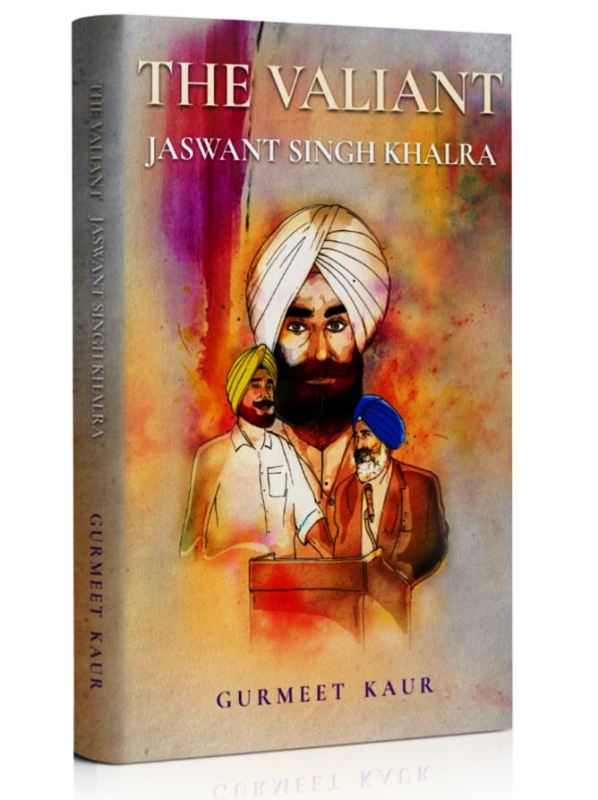
- In 2022, it was announced that Punjabi singer and actor Diljit Dosanjh would be portraying the role of Jaswant Singh Khalra in his biopic. Diljit while shooting in Amristar for the biopic faced a lot of criticism and protest on the sets saying that “he was not pious according to them.” They also called him “Videshi” and said that he was too “westernised” to play the role.
References/Sources:

